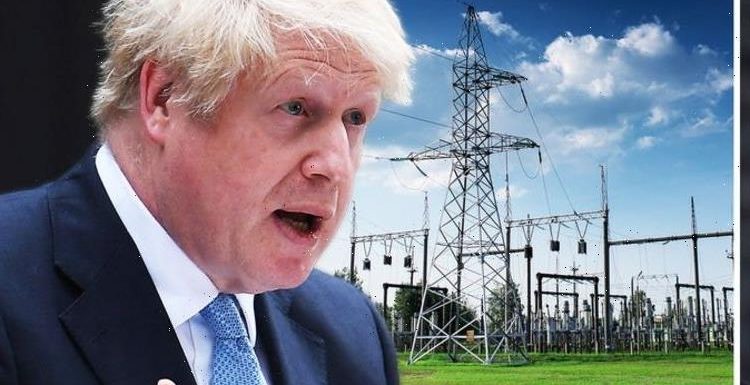
Russia: Portillo explains Germany’s fears over gas supply
We use your sign-up to provide content in ways you’ve consented to and to improve our understanding of you. This may include adverts from us and 3rd parties based on our understanding. You can unsubscribe at any time. More info
Experts have tipped that monthly imports of LNG shipments could surpass former records on Wednesday, finishing the month 19 percent than last month. Britain has been looking towards the competitive global LNG market over the last few months as Russian gas shortages have hiked up prices. It also comes as energy experts warned Europe could face electricity blackouts if temperatures fall.
A harsh winter is expected to boost demand for fuel to stay warm, and may lead to record lows worse than those seen in 2018.
Analysts say that “electricity blackouts (are) likely” if this happens.
And on Monday, the national grid electricity systems operators in the UK issued an alert as electricity generations plummeted to dangerously low levels.
But the crisis could be accelerated by Russian President Vladimir Putin.
Moscow has slashed gas deliveries travelling into Europe through its vast network of pipelines while it continues to pile pressure on Ukraine.


Now there are fears of a Russian invasion of Ukraine and has shown no sign of withdrawing its 100,000 troops stationed at the Russia-Ukraine border.
Foreign ministers met in Brussels on Monday to discuss measures on how to deter Russia, with one official saying the sanctions would be launched “within days”.
But the EU might want to be careful not to rub Mr Putin the wrong way.
That is because he provides the EU with 40 percent of its gas.
The Russian President’s gas squeeze already brought prices to record highs in October, only to be surpassed again in December.
And if the Kremlin does decide to launch an attack, supplies are expected to plummet further.

That is because Ukraine is a key transit country that pipeline gas passes through on its way to Europe.
Mr Putin has already been accused of deliberately withholding gas from Europe in order to speed up the certification that bring gas through Ukraine on its way to Europe.
Nord Stream 2, which will ultimately transit gas to Germany, has been hit with delays by regulators.
Mr Putin has been accused of deliberately slashing gas deliveries to speed up the certification process.
And now, opponents of the controversial pipeline, including the US, have called on the West to abandon the project if Russia invades Ukraine.
DON’T MISS
Boris on brink: Red Wall poll signal end of the road for PM [POLL]
EU Galileo blow as UK’s OneWeb network signs major deals [REPORT]
EU helpless over Russia thanks to Merkel as Biden poised to step in [INSIGHT]

This move could see Mr Putin decide to withhold even more supplies to Europe.
This helps to explain why Joe Biden’s administration has called for an increased production of liquefied natural gas (LNG) around the world.
It would mean that countries could fall back on increased supplies coming from companies in the Middle East, North Africa and Asia if Russian gas shortages get worse.
Amos Hochstein, Mr Biden’s Senior Adviser for Energy Security, has reportedly been drafting up a global strategy for contingency options to boost supplies.
A senior US administration official said earlier this month: “We are well aware of the potential impact of a reduction of Russian energy supply, both in Europe’s market and globally, and we are working very hard to identify and manage those risks with a range of contingency options.”

And most of the UK’s LNG shipments are coming from the US.
While Britain does not directly receive pipeline gas from Russia, it does indirectly purchase some off Belgium and the Netherland’s.
And as wholesale gas is an integrated market, the UK was suffering the effects of the skyrocketing prices.
In fact, wholesale gas prices in Britain soared by 17 percent on Monday as tensions over Ukraine grew.
But now, the UK is ramping up its imports to reduce Russia’s control on prices.
Source: Read Full Article